College News | Quick Read
A Q&A With Ramapo President Cindy Jebb
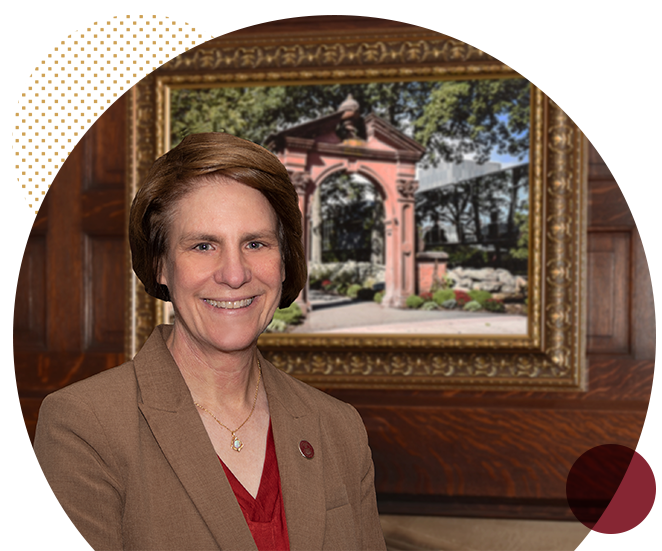
by Angela Daidone | Winter 2022
Dr. Cindy R. Jebb became the fifth president of Ramapo College of New Jersey in July 2021. Dr. Jebb retired from the U.S. military after 39 years of service at the rank of Brigadier General, Professor Emerita, and as the first woman Dean of the Academic Board at the U.S. Military Academy at West Point. She earned a Ph.D. in Political Science from Duke University, an M.A. in Political Science from Duke, an M.A. in National Security and Strategic Studies from the Naval War College, and a B.S. from the United States Military Academy at West Point. In addition to teaching courses in Comparative Politics, International Security, International Relations, Cultural Anthropology, Terrorism and Counterterrorism, and Officership. President. Jebb has served at home and abroad; conducted human security research in Africa; and completed study projects in Iraq and Afghanistan.
President Jebb spoke with Ramapo Magazine about the state of higher education and a shared vision for Ramapo College’s future.
RM: There has been a lot of talk in recent years about higher education not being so important for young people anymore. How do you feel about that?
President Jebb: I think the opposite. The stakes have never been higher for higher education for a number of reasons. For one, I don’t know how many institutions really stitch our country together–where all different people, from all different backgrounds and lived experiences, share ideas, and learn together and grow together. Higher education is one of them. When you think about a healthy culture that promotes a vibrant democracy that requires critical thinkers and that embraces different cultures, higher education is a place that has the attributes to help foster community, a community that promotes civic responsibility–that is what our democracy needs.
Higher education has a huge role to play in this enterprise: it provides opportunity for a community to learn together, work through difficult challenges, and build a trust that strengthens a democratic society through, as political scientists would say, a civic culture. Higher education has an important role in advancing knowledge, especially when you think about the challenges before us as we sit here in masks. Understanding technology and the ethical implications of technology is extremely important. Ramapo has an essential role as a public institution that promotes the liberal arts, that is, promotes the idea of thinking from all different angles and having an interdisciplinary take on those challenges that require innovative solutions.
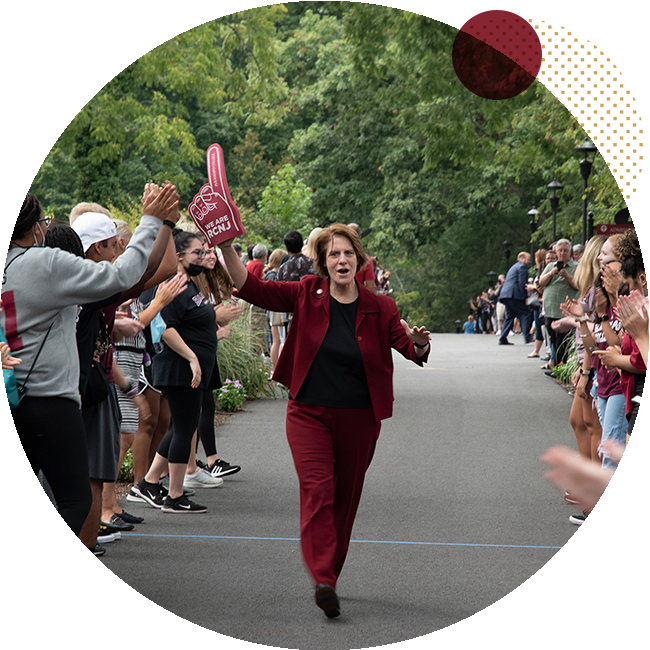
President Jebb runs up Mansion Hill to welcome incoming students at Arching in September.
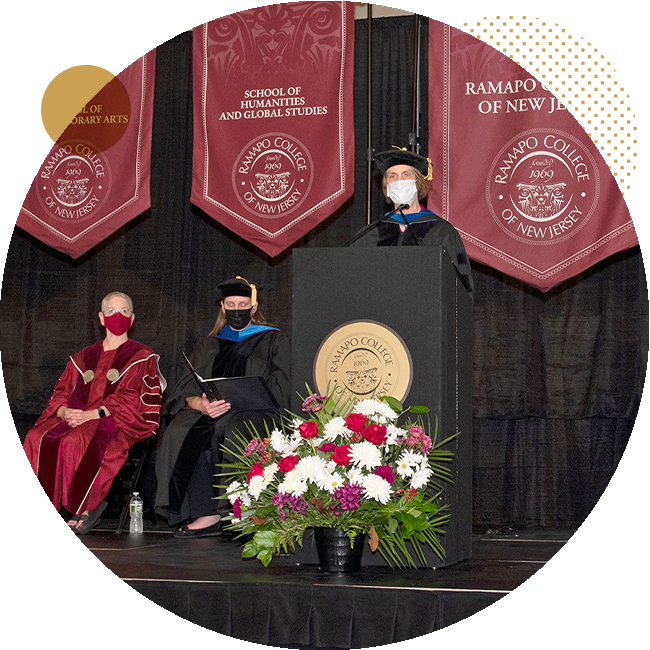
President Jebb and members of the Trustees and Administration kick off the Fall semester at Opening Convocation. The keynote speaker, appearing virtually, was Dr. Erica Armstrong Dunbar, author of Never Caught: The Washingtons’ Relentless Pursuit of Their Runaway Slave, Ona Judge.
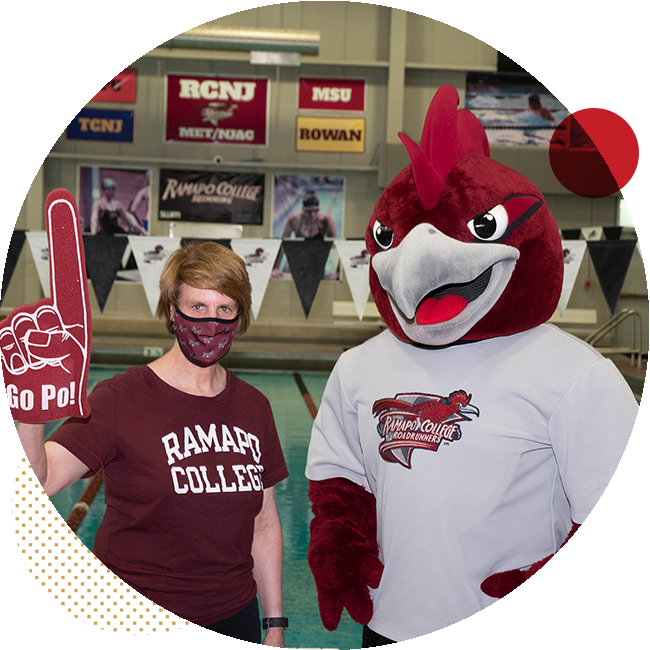
President Jebb and Rocky the Roadrunner showing school spirit.
RM: Ramapo has prided itself as a community-involved institution. Is there a plan in your vision to further that commitment to community service?
President Jebb: We are ripe for deepening that part of us. This generation of students is looking for meaningful work, purposeful work. Talking with students, I find they have a passion to make a difference across all sectors and for making a difference in the world.
This notion of service– in contributing to the greater good– is fundamental to the student experience. We will continue to explore new opportunities for students to engage in civic and public service and learn and grow from these important experiences.
RM: Colleges are reporting a decline in enrollment and it is forecast that the year 2025 will see a deep drop off in enrollment. What can Ramapo do to combat that trend?
President Jebb: The good news is that there is much to build upon here. We have a great track record in student success. Our graduates excel. One of the issues I’ve heard is that Ramapo has been regarded as a “hidden gem.” It’s time to not be hidden anymore, so we need to be deliberate and thoughtful about how we share the good news and reach communities that may not be familiar with the opportunities that Ramapo provides.
Our strategic planning process will lead to our prioritization of needs, as well as enhance sustainable growth; I anticipate greater opportunities for student research, student engagement and leadership, and student internships. Ramapo is a serious and rigorous educational institution that prepares ethical leaders to serve as agents of change.
While we’re not a designated “research institution” that doesn’t mean we don’t do research. We have great scholars, and our students get to work alongside them to conduct meaningful research and ultimately contribute to a range of fields and disciplines.
I read recently that on average, people now change careers 5-7 times in a lifetime, careers not jobs. We won’t be and we can’t be everything to everyone, but as the state’s premier liberal arts institution, we provide our students with a well-rounded education equipping them to be agile thinkers who can explore new industries and adapt to any career challenge.
“Ramapo has an essential role as a public institution that promotes the liberal arts, that is, promotes the idea of thinking from all different angles and having an interdisciplinary take on those challenges that require innovative solutions.”
— President Cindy Jebb
RM: What lessons have we learned from experiencing the pandemic and efforts to recover?
President Jebb: I’m very proud of the campus community, especially with how we have continued to adapt to change and follow new protocols. We have been very deliberate in those efforts. In order to have a safe and vibrant experience, we all had to lean in and do our part. An important element of the undergraduate higher education experience is the socialization component, so it was phenomenal on September 1 to welcome two classes of students who had never been to campus. The energy and excitement were wonderful, and it was easy to see how much we all hungered to be together.
The pandemic highlighted what we knew all along. We knew that our students come from all different home backgrounds, and this unevenness of the home environment came through more starkly during the pandemic. The same thing applied with our faculty and staff who were trying to manage and balance work and home life.
What we’ve learned, what we bring forward should be how we think about the complexity of our students’ experiences, how we provide student support services, and how we are being intentional about developing the next generation of ethical leaders. I think we’re all learning how to work effectively in this environment. We learned through our pilot program for staff, RamaPRO, that some functions can be productive remotely. We have learned about our ability to adapt, which gave us confidence, and we have certainly expanded our pedagogical approaches towards teaching and learning as well as our applications with technology.
Moreover, a great deal has happened in our country and the world during the last year and a half. I think it’s important that we are engaging in difficult conversations about public health, race relations, and even ethics. We continue to use higher education as an opportunity to learn from one another, and we have become more courageous to face our own biases and assumptions. Together we are a diverse community in a diverse country, and we need to capitalize on our diversity by identifying and valuing our diversity, thereby fostering a culture of dignity and respect. This intentional engagement makes us a stronger institution, a stronger community, and a stronger country.
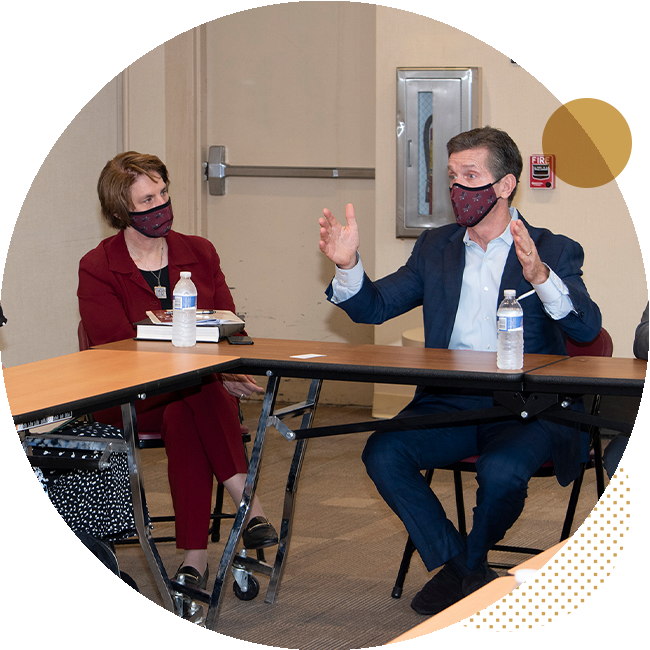
Alex Gorsky, Chairman of the Board and Chief Executive Officer of Johnson & Johnson, met with students as part of the Presidential Speaker Series.
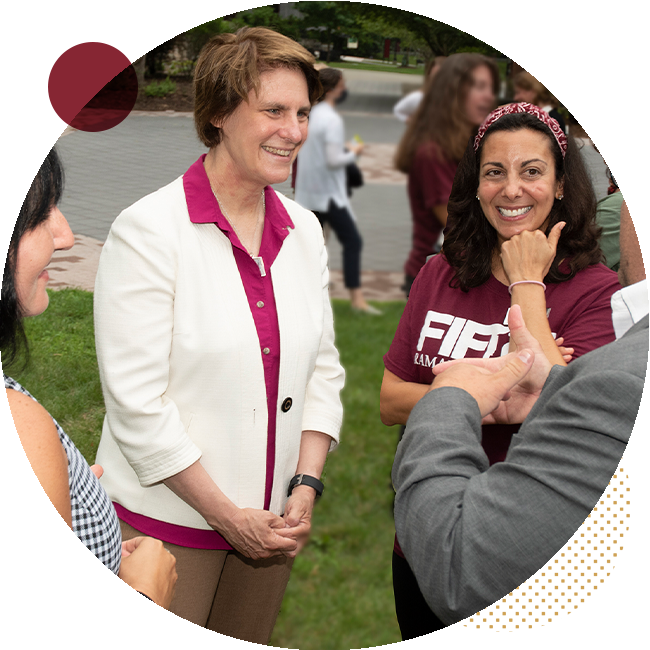
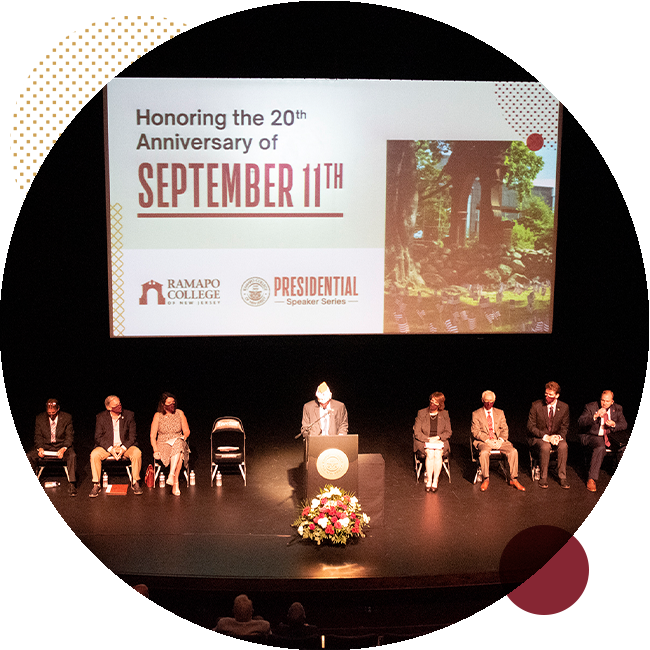
Jack Jacobs, Retired Colonel in the United States Army and Medal of Honor recipient was the keynote speaker as Ramapo observed the anniversary of the 911 attacks.
RM: What is your vision for Ramapo’s future?
President Jebb: The values and mission were the first things that caught my eye about the College, that is our student focus, individual attention, developing the whole person, being part of something bigger than yourself, and naturally the liberal arts.
I am excited by how our students, faculty, and staff envision our future. As the Needs Statements come in and as we continue the Future Series, each of these inclusive processes are helping to shape our campus master and strategic planning. I envision Ramapo as a truly important pipeline for engaging in civic and public service and, based on what our stakeholders are sharing, I can see our College boldly leading the way in modeling civil discourse such that Ramapo, as an institution, can grow and dramatically contribute to society, locally and globally.
RM: Do you find many differences between Ramapo students and the cadets at West Point?
President Jebb: There are many more similarities than differences. The students are all passionate, talented, dedicated, and hard working in both places. I enjoy meeting and speaking with the students here at Ramapo, as I did at West Point. I am finding the Ramapo students to be wonderfully interesting and engaging with a real passion to make a difference.
RM: On a personal note, what are you reading these days and how do you spend your weekends?
President Jebb: I recently read Good to Great: Why Some Companies Make the Leap… and Others Don’t, a management book by Jim C. Collins. Now I am reading Range: Why Generalists Triumph in a Specialized World by David Epstein. Next on the docket is a book by former Secretary of State, Madeleine Albright, titled Hell and Other Destinations: a 21st Century Memoir. Years ago, I had a fireside chat with her, and I so enjoyed meeting with and learning from her! I am really looking forward to her book!
When I have time on the weekends, I like to hike at the Ramapo Reservation with my family, visit our grandson, and do some jogging down around the College baseball field. I also really enjoy going to the games here — field hockey, ice hockey, volleyball, tennis, soccer, and now I look forward to the winter sports. And I love the student performances at the Berrie Center; in fact, my Mom and her friend are also enjoying the plays and the competitions here at Ramapo. My husband and I are thrilled to be here, and we look forward to learning more about the area.
